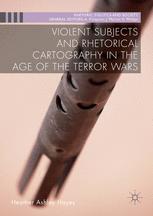

Most ebook files are in PDF format, so you can easily read them using various software such as Foxit Reader or directly on the Google Chrome browser.
Some ebook files are released by publishers in other formats such as .awz, .mobi, .epub, .fb2, etc. You may need to install specific software to read these formats on mobile/PC, such as Calibre.
Please read the tutorial at this link: https://ebookbell.com/faq
We offer FREE conversion to the popular formats you request; however, this may take some time. Therefore, right after payment, please email us, and we will try to provide the service as quickly as possible.
For some exceptional file formats or broken links (if any), please refrain from opening any disputes. Instead, email us first, and we will try to assist within a maximum of 6 hours.
EbookBell Team

4.7
106 reviewsThis work examines violence in the age of the terror wars with an eye toward the technologies of governance that create, facilitate, and circulate that violence. In performing a rhetorical cartography that explores the rise of the US armed drone program as well as moments of resistive violence that occurred during the Arab Spring directed at generating a counter-hegemony by Muslim populations, the author argues that the problem of the global terror wars is best addressed by a rhetorical understanding of the ways that governments, as well as individual subjects, turn to violence as a response to, or product of, the post September 11th terror society. When political examinations of terrorism are facilitated through understandings of discourse, clearer maps emerge of how violence functions to offer mechanisms by which governing bodies, and their subjects, evaluate the success or failure of the “War on Terror.” This book will be of interest to public policymakers and informed general readers as well as students and scholars in the fields of rhetoric, political theory, critical geography, US foreign relations/policy, war and peace studies, and cultural studies.